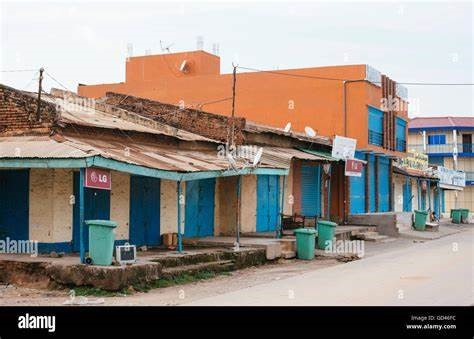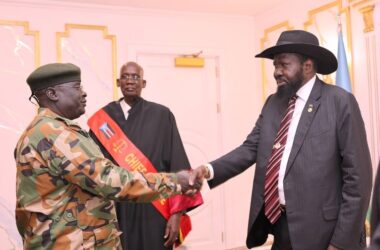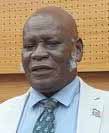By Yiep Joseph
Minister of Livestock and Fisheries Onyeti Adigo, has accused traders in the country of abusing the free market system through arbitrary and excessive pricing of their products.
The free market is an economic system based on supply and demand with little or no government control. One of its central principles is voluntary exchange.
The Minister stated that several traders manipulate market prices through excessive charges, justifying it by claiming the free market system permits such practices.
He raised the concern in Juba during the launch of the first National Trade Forum, which brought together many people, including traders.
“If you can answer this question: I get my pen in one shop for SSP 10,000, in another shop for SSP 15,000, and in another shop for SSP 20,000. Why should the price differ for the same pen? Why? Because of misuse of the free market, isn’t it? This is misuse of the free market,” Adigo said.
“I think it’s good we challenge ourselves because people are misusing what we call the free market. The concept of a free market… is being misused here in South Sudan,” he added.
The Minister reiterated that since the dollar rate in the black market is ostensibly the same, there is no justification for traders selling similar products at different prices within the same market.
“Some of you will say you are buying dollars from the black market. But is the black market dollar rate different or the same? It’s the same. So why should prices differentiate in the market?” he asked.
He accused traders of exploiting the public, particularly buyers, with unsubstantiated complaints that do not justify price increases.
The Minister warned South Sudanese citizens against participating in the exploitation of fellow citizens.
He accused some powerful government officials of potentially being involved in the market, influencing prices, and supporting certain traders in manipulating the market.
Mr. Onyeti also pointed an accusing finger at traders and some private firms for failing to remit personal income tax to the government.
“I think cash is more important than people [to some]. But again, you go to the bank, and there is no cash. Who is holding this cash? It is you. The business people are the ones holding the cash. They are fighting the government,” he charged.
He questioned the origins of the black market, suggesting external actors might be involved. “Who developed the black market? … And those driving it are foreigners, by the way, not South Sudanese,” he said.
He appealed to South Sudanese to work hard to bring necessary change to the country.
“So, I think we need to change. I think this meeting, all of the ministers, should bring about change,” he said.
“Because without change, if we continue like this, then you are fighting the government… We in the public sector will bring up laws or national measures to address what is happening now,” he added.
Last year, traders attributed the skyrocketing prices of commodities to several key factors, including fluctuations in the exchange rate, increased taxation, and excessive fines imposed by Juba City Council authorities.
Mr. Elias Mugagga, Chair of the Ugandan community in South Sudan, stated that exchange rates and multiple tax collections are the main factors behind price increases in the markets.
“The issue disturbing us now is the dollar [rate], but there is something that we have forgotten as traders operating in South Sudan—the issue of revenues [taxes],” he said.
He urged the Chairman of the National Chamber of Commerce to engage with tax authorities on unifying levies to avoid double taxation.
In rebuttal, the Chairperson of the South Sudan National Chamber of Commerce, Industry, and Agriculture (SSCCIA), Lado Lukak, said his office is working hard to ensure that all taxes are reasonable.
He urged the business community to put greed aside and serve the citizens with pure hearts.




